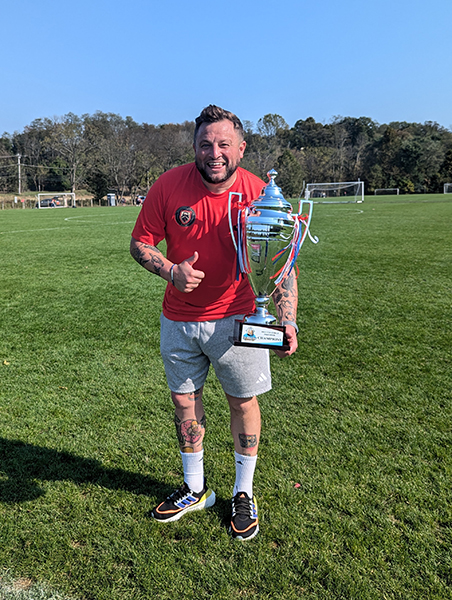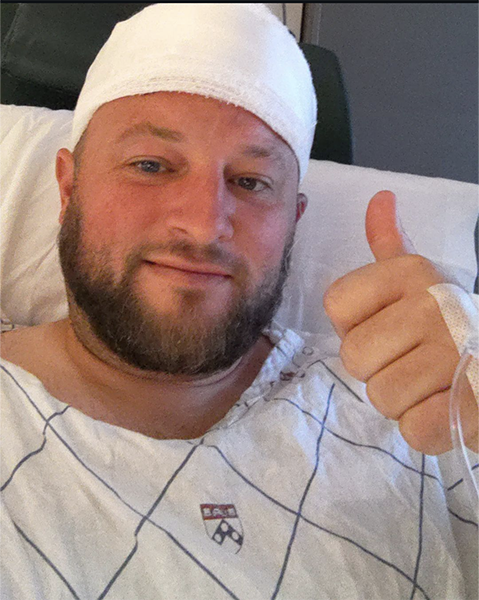In early 2019, I began experiencing unusual neurological symptoms: dizziness, blurry vision, and difficulty holding onto items like pens and eating utensils. I had a mild concussion in the fall of 2018 but hadn’t connected these symptoms to that incident.
Concerned, I made an appointment with a neurologist — and soon after, received life-changing news. Doctors discovered a meningioma, a type of brain tumor. From that moment, everything changed, and I entered a new world of regular monitoring, undergoing MRI scans every six months to track the tumor’s growth.
For three years, life was lived in six-month increments, balancing a wait-and-see approach with the hope that surgery wouldn’t become necessary. But in April 2022, my doctors said it was time. The tumor needed to be removed, and I was given a choice between surgery and starting chemotherapy. The craniotomy was scheduled for July. When the day arrived, I was surprisingly calm — maybe because I couldn’t have my morning coffee!
But recovery in the hospital was brutal. Although I was exhausted, nurses had to wake me every hour to check my vitals. On the second night (or so I remember, though it could have been the medications), my heart rate dropped alarmingly low. Nurses rushed in, bringing my levels back up. I recall an “out-of-body” experience, a feeling of peace, much like those described by people who say they’ve died and come back. It’s an intense memory that feels as vivid as if it happened yesterday.
After two days in the hospital, I was sent home, surrounded by an incredible support system. My ex-wife was a tremendous help, driving me to and from the procedure and letting me recover at her house for a few days before I was ready to be on my own. My mom also flew in from Boston to help around the house and spend time with the kids. And my community of friends organized meals for me. Some even brought me lunch, dinner, or ice cream and just sat with me while I ate.
The recovery journey was tough, but I began with light exercise within a few weeks, determined to regain a sense of normalcy. (And I even lost a few pounds, thanks to no beer during recovery!) Today, I wear my scar with pride — it’s proof of what I’ve overcome. My hair still looks great, framing a story of resilience. I do wear glasses now, and my short-term memory isn’t as sharp as it once was.
While my recovery was relatively straightforward as far as brain surgeries go, I realize how significant this journey was, and I want to help others facing similar challenges. This is why I’m committed to supporting the National Brain Tumor Society (NBTS) however I can. I was fortunate to have good health insurance, which minimized out-of-pocket costs over 3 ½ years of MRIs and surgery, and an incredible support system. I want to make sure others can have the same advantages and support.
I’m excited to work with the NBTS and be a voice for those impacted by brain tumors.




